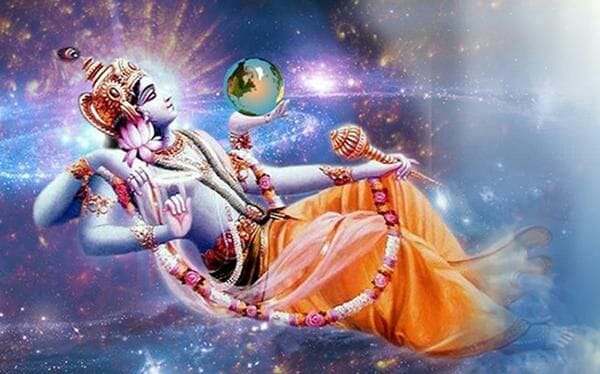Question: Srimad Bhagavatam starts by introducing Krishna as the creator of the universe and introduces him as ‘Bhagavan’, the Supreme Godhead. Is this a pre-supposition that there is an actor who created the material world? I am not sure we will get an answer following the ‘Bhakti’ philosophy, since this philosophy is built on assumptions which I am questioning! We should ask why would Vedavyas composed something like Bhagavatam after consolidating all of the vedas and the Upanishads. Why is he introducing Krishna, whose reference is not found in the Rig and the other vedas and upanishads? What was the real need?
Answer by Romapada Swami: No, it is not a supposition or assumption. Srila Vyasadeva is not a fiction writer; nor a speculative philosopher turned to “moral story” writer for controlling the masses. He is recording transcendental facts and histories in complete truthfulness.
We tend to look at others based on our own conceptions — atmavat manyate jagat. Modern science as well as modern philosophies are all built upon numerous axiomatic assumptions, based upon which they have chosen to describe their understanding of reality. On this basis we have been led to believe that Vedic scriptures have also been constructed in the same manner. By such an approach to the Vedas one is sure to be bewildered, and too prejudiced to hear what the Vedas have to speak for themselves. The Vedas, including the Puranas and itihasas, are eternal, not man-made literatures. The entire body of Vedas has a specific progression or evolution of spiritual realizations, the culmination of which is found in the Bhagavatam, which Vyasadeva reveals in the maturity of his realization. [Note: Vyasadeva is tri-kala-jna, a seer of truth past present and future. Thus his writing histories of events even before they transpire, such as the appearance of Buddha and Kalki avatar, is fact – not a product of his imagination.] (See SB 1.4 and SB 1.5)
But all of the Vedas are presenting the Truth as it is – as seen “from up above” or from the Absolute perspective, rather than from down below, i.e. like the effort of a man at the foothill trying to imagine what must be at the summit. Modern society has walked too far away from the cultural context in which the Vedas were easily understood. All efforts to “explain” the Vedas from ‘outside’ that context will end in speculation. If you truly want to understand the answers to these questions, you will be frustrated or cheated by looking for it through hearsay. One must approach a bona fide spiritual master in an authorized disciplic succession from Vedavyasa himself, and learn this science by rendering service and making submissive inquiries. This is the process for getting transcendental knowledge about God:
tad viddhi pranipatena
pariprasnena sevaya
upadeksyanti te jnanam
jnaninas tattva-darsinah







